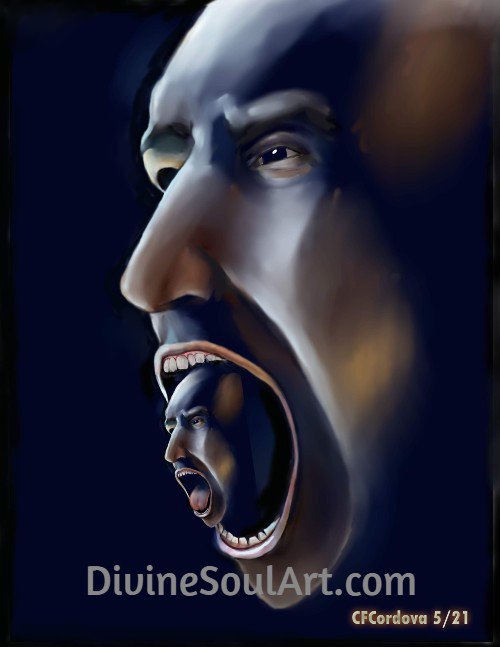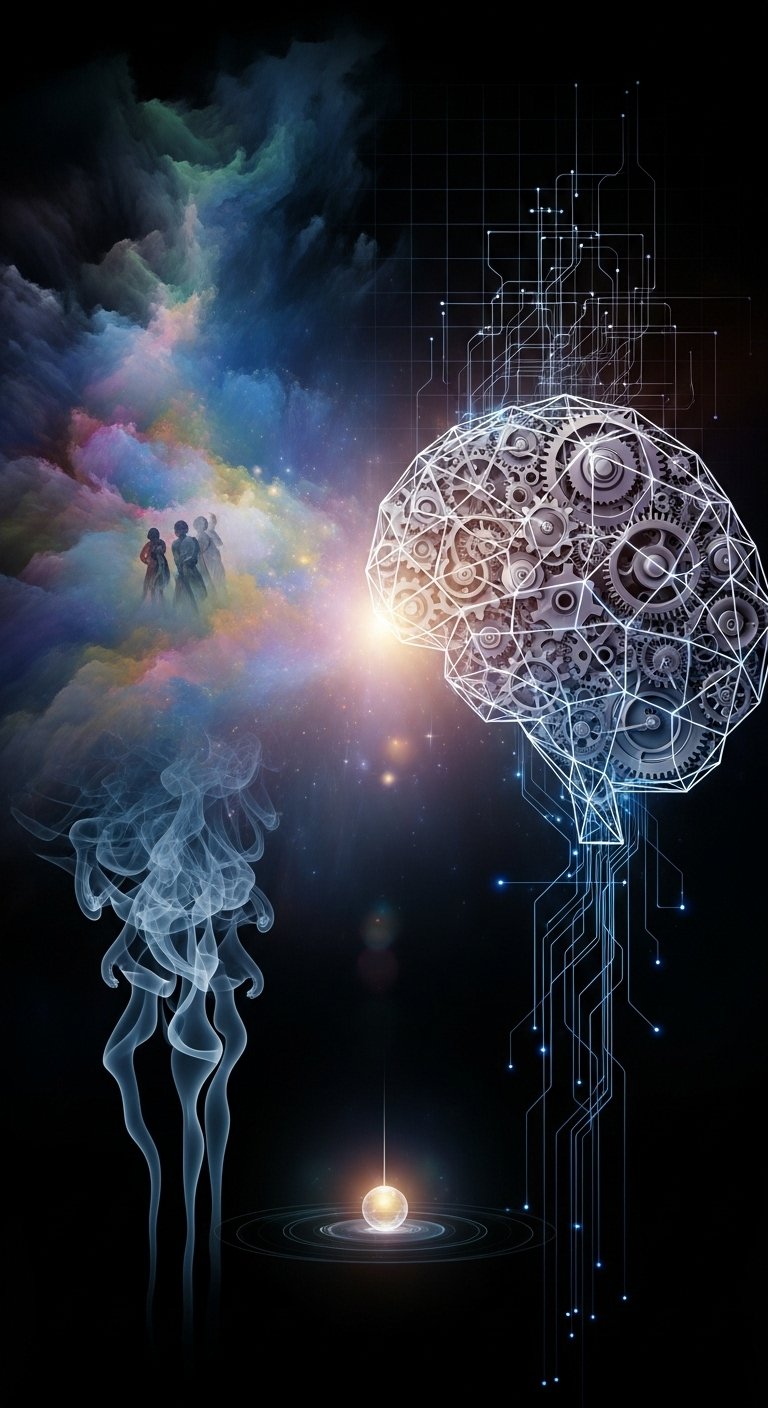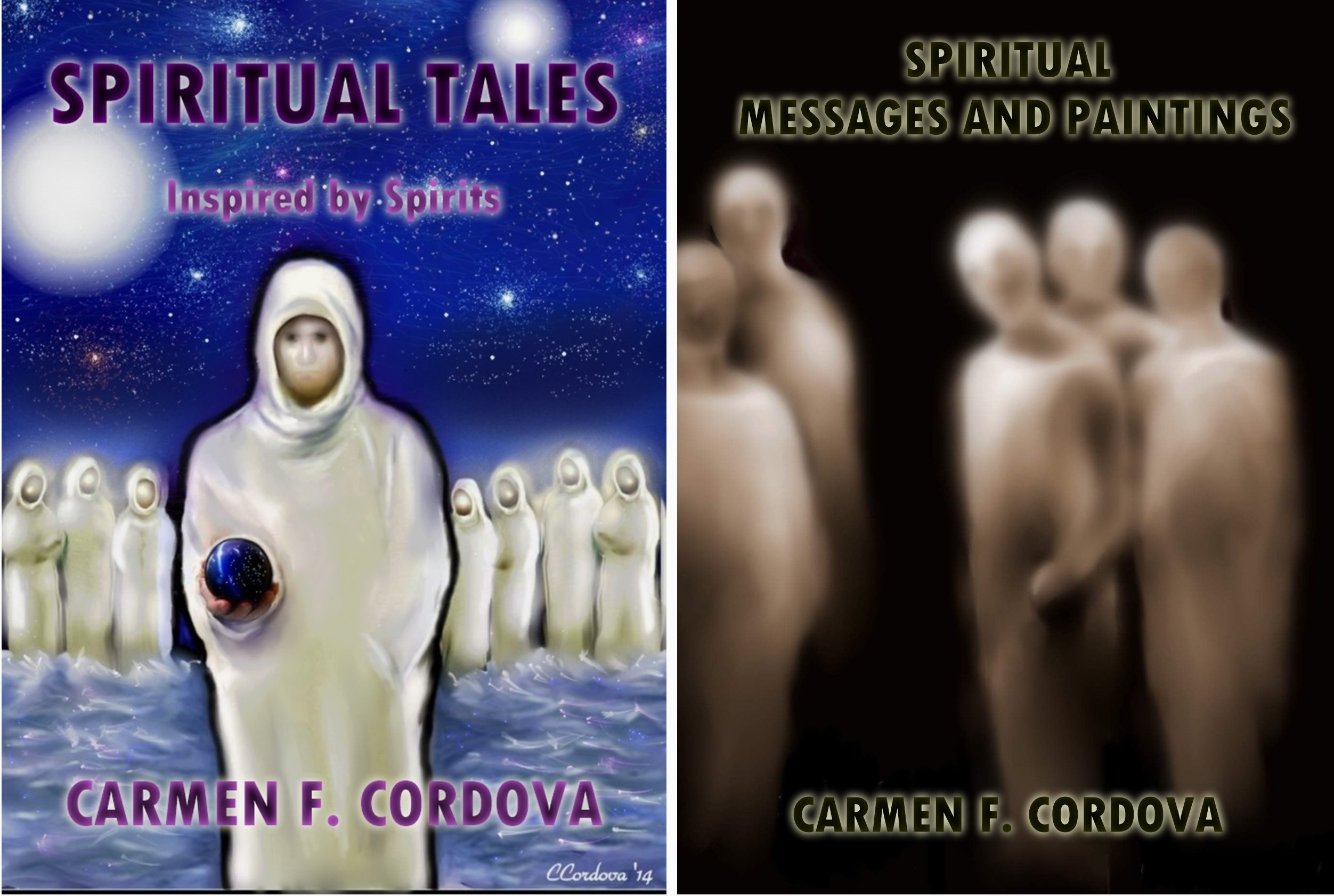What is Intuition?
 What is Intuition? Inner Voice
What is Intuition? Inner VoiceWhat is Intuition ?
Definition
What is Intuition?
Intuition allows individuals to gain knowledge without the need for reflective thinking. It is a natural ability that helps people make decisions quickly. The word ‘intuition’ originates from the Latin verb ‘intueri’, meaning ‘to consider’. This concept is often described as an instinctive or gut feeling, something we feel deep within us without the need for deliberate thought. Unlike rational reasoning, which involves a step-by-step analysis of information, intuition emerges holistically and rapidly, often without our awareness of the underlying mental processes.
At the heart of intuition lies the unconscious mind, which rapidly sifts through past experiences and cumulative knowledge to provide insights. This process is not random; it is a sophisticated mechanism that allows us to recognize patterns and relationships instinctively. People often experience intuition as a sudden realization or a light bulb moment, where everything clicks into place without the need for conscious thought or conscious mind.
Every individual possesses multiple forms of intuitive knowledge, which can vary in prominence based on personal characteristics. Some people might rely more on their gut feelings, while others might experience intuition through subtle nudges or thoughts. This inner dialogue, whether loud or quiet, is a valuable guide in navigating life's complexities.
The Science Behind Intuition
The science behind intuition reveals a fascinating interplay between the conscious and unconscious mind. Our unconscious mind operates much faster than conscious deliberation, rapidly analyzing situations against our past experiences and knowledge. This rapid processing allows us to make quick judgments based on pattern-matching, a key component of intuitive knowledge.
Research in psychology and neuroscience has shown that intuition is not a mystical phenomenon but a natural and powerful thought process. By unraveling intuition, we can appreciate how our brain’s automatic processing contributes to our ability to navigate complex and uncertain situations instinctively. These insights reveal that intuition is deeply rooted in our cognitive functions, offering a bridge between our conscious and unconscious minds.
Types of Intuitive Knowledge
Intuitive knowledge manifests in various forms, each offering unique insights and guidance. One of the most common forms is the gut feeling, an instinctive reaction that often guides us in immediate situations. First impressions are another form, where our initial perception of a person or situation can provide valuable information without the need for detailed analysis. Other forms of intuitive knowledge and intuitions can also play a significant role in decision-making, influencing our emotions.
Implicit knowledge, another type of intuitive knowledge, often emerges as sudden epiphanies or light bulb moments. These ideas can happen after exploring a break from a problem, allowing the unconscious mind and conscious mind to process information in the background and discover new solutions.
Higher emotional intelligence is also linked to stronger intuitive powers, enabling individuals to better read their own gut feelings and respond to situations instinctively.
The Role of Intuition in Decision Making
Intuition has been a topic of interest for many. The New York Times has published several articles on intuition and decision-making.
Intuition plays a crucial role in decision-making, particularly in scenarios where quick judgments are required. Formed from the unconscious mind’s rapid analysis of past experiences and knowledge, intuition often manifests as gut feelings that guide us instinctively. While gut feelings are reactive and related to immediate situations, intuition encompasses a broader understanding that can guide us toward positive changes.
In high-stakes situations, such as emergency medical scenarios or investment decisions, intuition often prompts leaders to make critical choices when data is inconclusive. Executives overwhelmed with data are advised to heed their intuition, as it can reveal insights that quantitative analysis may overlook. Studies show that leaders who effectively integrate intuition into their decision-making processes often achieve better outcomes, especially in unpredictable environments.
Balancing intuition with rational thought can enhance decision-making by leveraging the strengths of both approaches. Intuitive insights can guide decisions in cases where qualitative factors, like employee satisfaction or customer feedback, are significant but difficult to quantify. Thus, intuition serves as a valuable tool in navigating the complexities of life and work.
Intuition vs. Rational Thought

Intuition and rational thought are two distinct but complementary thought processes. Intuition operates on a higher level of consciousness compared to gut feelings, allowing for informed choices rather than just survival instincts. It often functions as a rapid response based on previous experiences, providing quick insights that may be overlooked by deliberate analysis.
While rational thought relies on systematic analysis and logic, it is crucial for structured decision environments. However, in complex or unclear situations, intuition shines by offering quick insights that data-driven analysis may miss. Recognizing the strengths of both approaches can enhance our ability to make well-rounded decisions.
Difference between Psychological and Spiritual intuition
Psychological intuition derives from cognitive processing and previous experiences, allowing for pattern recognition and decision-making based primarily on intellect. It involves reasoning based on past experiences and knowledge, making educated guesses grounded in logical deductions and evidence through psychological inquiry.
Spiritual intuition is characterized by a deep-seated connection to a higher power or spiritual realm that transcends the physical realm. It encompasses feelings and insights that emerge without concrete evidence, often guiding individuals toward profound realizations that defy conventional understanding. Unlike analytical thought, which relies on empirical data and logical reasoning, spiritual intuition taps into an inner wisdom that reveals deeper truths about existence, purpose, and the interconnectedness of all life. This intuitive awareness can foster a broader, more comprehensive understanding of reality, inviting individuals to embrace experiences, emotions, and insights that may not be immediately quantifiable but resonate on a soulful level.
Difference between Intuition and Instinct
While intuition and instinct are often used interchangeably, they represent different thought processes. Intuition is the ability to acquire knowledge without conscious reasoning, drawing on past experiences and pattern recognition to provide insights. It manifests as a gut feeling or an inner guide that guides us in decision-making.
Instinct, on the other hand, is a primal response driven by biological impulses. It is an automatic reaction to immediate stimuli, designed to ensure survival. Unlike intuition, which involves a level of cognitive processing, instinct operates purely on a biological level, driving actions without the need for conscious thought.
Spiritual Intuition

Spiritual intuition is a profound form of intuition that connects us to a higher power or spiritual realm. It often provides insights that transcend ordinary understanding, revealing deeper truths and guiding us toward a more meaningful existence.
Developing spiritual intuition involves practices that promote inner peace and awareness, such as meditation and mindfulness, allowing us to connect with our higher selves and access this higher form of awareness.
Medical Intuition
Medical intuition is a specialized ability that enables individuals to detect health issues and gain a deeper understanding of the underlying causes of both physical and emotional ailments. This practice integrates intuitive insights, sometimes referred to as “second sight,” with comprehensive medical knowledge, allowing practitioners to recognize subtle imbalances within the body and mind.
By utilizing techniques such as energy assessment, visualization, and empathetic listening, medical intuitives can identify not just symptoms but also the root causes of various health concerns. This holistic approach considers the interconnectedness of physical, emotional, and spiritual well-being, leading to more effective healing strategies.
Developing medical intuition requires rigorous training that encompasses both the sciences of human anatomy and physiology as well as intuitive practices such as meditation, mindfulness, and other self-awareness techniques. This combination fosters the practitioner's ability to make informed diagnoses and implement appropriate treatment plans tailored to the individual's unique circumstances and needs. As a result, patients may receive care that is not only more personalized but also addresses the multifaceted nature of their health challenges.
(It is advisable to consult a medical doctor first)
Intuition vs Sensing
Intuition and sensing are two fundamentally different approaches to perceiving the world around us. Intuition refers to the ability to acquire knowledge spontaneously, without engaging in deliberate reasoning. This method relies heavily on the unconscious mind’s capacity to identify patterns, draw insights, and make connections that may not be immediately apparent. It allows individuals to perceive underlying possibilities and make decisions based on a gut feeling, often in situations filled with uncertainty or complexity.
On the other hand, sensing is a more grounded approach that focuses on collecting information through our five senses—sight, sound, touch, taste, and smell. It emphasizes an awareness of the present moment and is rooted in observable, concrete facts. Sensing allows individuals to perceive their immediate environment in detail, providing a reliable and accurate interpretation of reality.
While sensing offers a clear and detailed understanding of tangible experiences, intuition can facilitate a broader perspective that aids in navigating complex decision-making scenarios. By blending both approaches, individuals can enhance their ability to process information and make informed choices in various situations.
Intuition vs Gut Feeling
Intuition and gut feelings are interconnected yet distinct concepts that play significant roles in decision-making. Intuition is often likened to a sixth sense or an inner voice that provides guidance in situations where logic falls short. It manifests as subtle nudges or thoughts that arise spontaneously, helping individuals navigate complex choices, often without the need for extensive deliberation.
In contrast, gut feelings are characterized by physical sensations within the body, typically experienced as strong, immediate urges or instincts that compel a person to act. These sensations often arise in response to specific stimuli or situations, conveying a sense of urgency or importance.
The gut is recognized as a powerful center of action and energy, often referred to as the "second brain," because of the extensive neural network it contains. This physiological aspect can drive instinctive behaviors, while intuition taps into a deeper level of awareness and often requires contemplation to understand fully.
For many individuals, particularly those who naturally gravitate towards a gut-based decision-making style, trusting their instincts is vital. They often find that these gut responses provide clarity and direction in situations where analytical thinking may be overwhelmed by emotion or uncertainty.
By deepening our understanding of the relationship between intuition and gut feelings, we can enhance our decision-making processes. Recognizing the strengths and limitations of each can help individuals make choices that are not only informed but also well-balanced, integrating both emotional and rational elements.
Intuition and Sixth Sense
Intuition is frequently described as the sixth sense, a profound ability to perceive and understand situations without the reliance on logical reasoning or analytical thought processes. It serves as a nuanced inner guidance system, helping individuals make choices that resonate authentically with their true selves and values. Experiences of intuition often present as powerful, inexplicable feelings or subtle impulses that guide decision-making, allowing for pathways that may defy conventional logic.
Accessing this intuitive insight can be obstructed by chaotic thought patterns and emotional turmoil, which emphasizes the critical need for achieving mental clarity. When the mind is cluttered, it becomes challenging to hear the soft whispers of intuition. In contrast, true intuition brings with it a reassuring sense of peace and alignment, facilitating decisions that feel inherently right and grounded, unlike the anxiety or pressure that often accompanies hasty or conflict-driven choices.
Embracing intuition as an integral component of our decision-making process can significantly enhance our ability to navigate life's complexities. By trusting this sixth sense, we can forge paths that are not only in harmony with our deepest values and desires but also foster personal growth and fulfillment. In a world that often prioritizes logic and analysis, recognizing and nurturing our intuitive abilities can enrich our lives and cultivate a deeper connection to our inner selves.
Enhancing Your Intuitive Abilities
Enhancing your intuitive talents involves practices that promote mindfulness and inner awareness. Practicing mindfulness can help individuals become more aware of their thoughts and feelings, which in turn can enhance intuitive perception. Engaging in meditation can help calm the mind, allowing one to better connect with their intuitive powers.
Spending time in nature fosters a deeper connection to one’s intuition by promoting a sense of peace and awareness. Creating quiet moments in daily life helps strengthen the connection to your intuition, allowing you to hear your inner guide more clearly. Journaling can serve as a valuable tool for reflecting on intuitive insights and thoughts, aiding in the development of intuitive skills. These methods include:
- Spending time in nature to promote peace and awareness
- Creating quiet moments in daily life to strengthen your connection to intuition
- Using journaling to reflect on intuitive insights and develop intuitive skills
Visualization techniques can also be used to strengthen intuition by imagining scenarios and observing intuitive reactions. Engaging in practices like journaling and meditation can help clarify your inner voice, enhancing your ability to trust and act on your intuitive insights. Nature and grounding activities can further enhance your ability to hear your intuitive insights, making it easier to navigate life’s complexities with confidence.
Common Misconceptions About Intuition
There are several common misconceptions about intuition that can cloud our understanding of this powerful thought process. Many people mistakenly believe that intuition is purely instinctual and not influenced by learned experiences. In reality, intuition is deeply rooted in our past experiences and cumulative knowledge, allowing us to make informed decisions without conscious reasoning.
A prevalent misconception is that intuition operates in isolation from rational thought, when, in truth, they often work hand in hand to enhance decision-making. Intuition, defined as the ability to understand or know something immediately without the need for conscious reasoning, can be a valuable tool; however, it is not infallible. Many people believe that intuition is always reliable, yet this belief is misleading, as intuitive judgments can be significantly influenced by personal biases and prior experiences, which can distort perception and lead to erroneous conclusions.
This perspective aligns with a philosophical approach that underscores the intricate relationship between intuition and rationality, suggesting that they are not mutually exclusive but rather complementary. Research in cognitive psychology supports this theory by demonstrating that our intuitive insights can serve as a starting point for deeper analysis, ultimately leading to more well-rounded and informed decisions—even if the initial intuition is incorrect. Acknowledging the interplay between these two forms of understanding encourages us to harness the strengths of both intuition and rational thought, resulting in improved judgment and problem-solving capabilities.
Cognitive biases can affect both intuition and rational thinking, potentially leading to errors in decision-making. It is often assumed that intuitive judgments are universally accurate; however, their reliability can vary across different cultural contexts. Recognizing these misconceptions can help us better harness the power of intuition while remaining aware of its limitations.
Trusting Your Inner Voice
Trusting your inner voice can lead to profound personal fulfillment, even when the path is full of challenges. Intuition is often characterized as a subtle yet powerful sense of energy that offers valuable insights, facilitating healthy decision-making that benefits not only yourself but also your community. By embracing and acting on your intuition, you can foster a sense of self-confidence and deepen your connection to your authentic self.
Despite any fears or doubts, each step taken in alignment with your inner voice helps cultivate a stronger connection with your intuition. This internal guidance serves as a compass, directing you toward choices that resonate with your core values and aspirations. By listening to your inner self, you can lead a more authentic and fulfilling life, allowing you to make decisions that align with your deepest values and desires, even when faced with challenges.
Real-Life Examples of Intuition at Work
Real-life example of intuition at work highlights its practical applications and benefits. For instance, a renowned entrepreneur relied on their gut feeling to pursue a business opportunity that others dismissed, resulting in significant success.
In another instance, a woman was speaking with her friend on the phone. As they were ending the conversation, she felt an uneasy sensation. Although nothing alarming had been discussed, she couldn't shake off the feeling. Without thinking it through, she got in her car and drove to her friend's house.
When she arrived, her friend was surprised to see her. After the woman shared her uneasy feeling at the end of their conversation, her friend began to cry. It turned out that she had been hiding her true emotions and was contemplating taking her own life.
The woman's willingness to trust her intuition and act on her instincts proved to be a critical lifeline in a moment of crisis, ultimately saving her friend's life.
Such stories show how trusting our intuition can be beneficial to ourselves and others.
Summary
Intuition is a powerful and often underappreciated aspect of human cognition. By understanding its definition, the science behind it, and the various forms it takes, we can better appreciate its role in our lives. Intuition helps us make quick decisions, navigate complex situations, and connect with our inner selves. It complements rational thought, providing insights that data-driven analysis may miss. Recognizing the differences between psychological and spiritual intuition, as well as distinguishing intuition from instinct and gut feelings, enhances our ability to harness this inner guidance.
Enhancing our intuitive abilities through mindfulness, meditation, and journaling can lead to more fulfilling and authentic lives. Trusting our inner voice, despite challenges, helps build confidence and align our actions with our true selves. By demystifying intuition and addressing common misconceptions, we can better utilize this powerful tool. Embrace your intuition and let it guide you toward spiritual, personal, and professional success.
Click below and views more than 600 pieces of spiritual artwork

Spiritual Books
If you enjoy the articles on this website, you will also appreciate the short stories in the books below. Click here and continue the journey.



